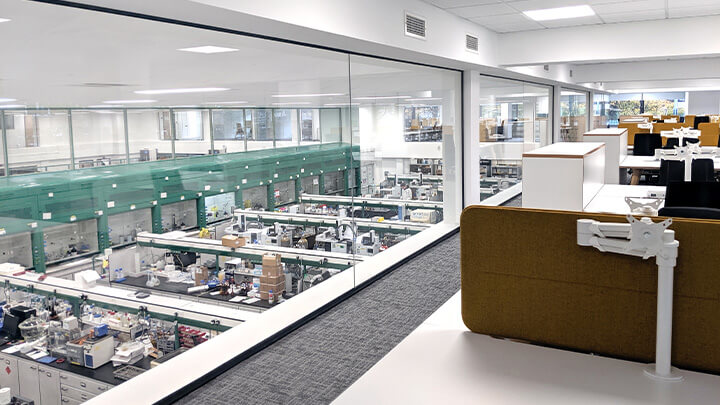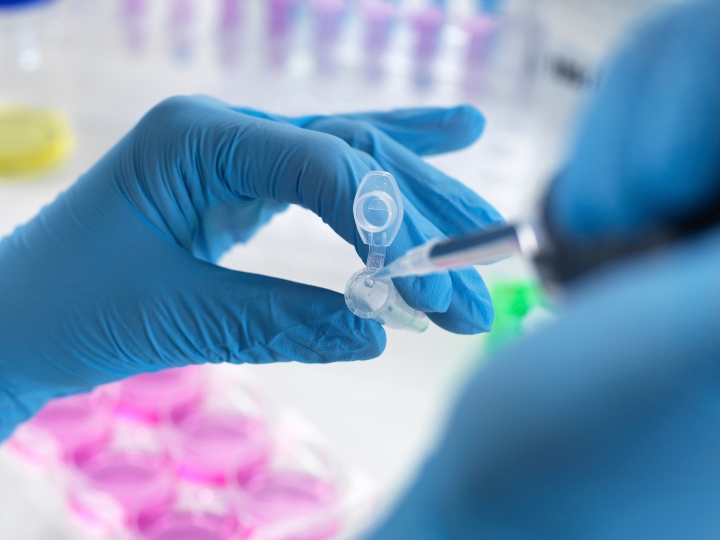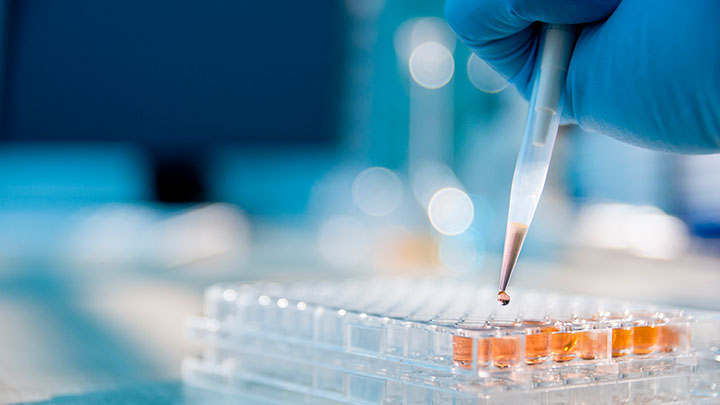Viral vector characterization and release testing services including stability and aggregation testing from Intertek's centre of Excellence for Biologics Characterisation
Improvements in viral vector characterization and release testing are key factors for the timely development of viral vector-based therapies. Viral vectors are the leading vehicle for gene therapy and multiple virus-based drugs have been globally approved, with more in development, for the treatment of cancer and neurology, ophthalmology, haematology, metabolic or muscular disorders. Viral-based products will continue to play a key role in the future of pharmaceutical innovation for many years to come.
From a regulatory perspective, an understanding of viral vector critical quality attributes (CQAs) that impact product safety, purity, and potency, mean that specific, robust analytical assays are needed to assess vector productivity, vector purity, biological activity and safety and this is reflected in the current regulatory guidance. The inherent complexity of viral vector-based products, due to their physical size, formulation, and the fact that they often utilize a combined drug targeting/delivery vehicle function makes their physical and biological characterization highly challenging.
Viral Vector Characterisation Expertise
Our experts have worked on multiple studies involving wild type and genetically modified (GMO) BSL-1 and BSL-2 viruses, including as Adenoviruses, adeno-associated virus (AAVs) and Lentivirus over the past 20 years. With a wide range of expertise and technology in-house, we deliver comprehensive advanced characterisation programs to support your product development, formulation, regulatory submission and production. This includes regulatory compliant (GLP/cGMP) assays for release testing, bioanalysis, characterization and stability. Bringing quality and safety to life, we offer Total Quality Assurance expertise to help you to meet and exceed quality, safety and regulatory standards.
Viral Vector Purity
One major concern for vector purity is the determination of empty vs full capsids or capsids that contain DNA other than the desired full-length vector genomes. We can apply a range of the approaches including cryo-transmission electron microscopy (cryo-TEM), size exclusion chromatography (SEC) and analytical ultracentrifugation (AUC).
Vector Identity
- Transgene expression (RTqPCR and ELISA)
- Liquid chromatography and mass spectrometry (LC-MS) studies on whole virus species to characterise the viral proteome
- Rapid screening of viral proteome fingerprinting by chromatography (HPLC), MALDI mass spectrometry and gel electrophoresis (SDS-PAGE). MALDI is useful for proteins up to around 150 KDa.
- Digestion of isolated proteins followed by LCMS and/or MALDI-MS to give detailed information to assist the identification of viral proteins
Potency
One of the most critical lot release assays for an AAV vector is vector genome (vg) titer assay since genome copy numbers are universally used for dosing purposes in both preclinical and clinical studies. Our team overcome the limitations of quantitative PCR (qPCR) by applying digital droplet PCR (ddPCR) which does not use standards, and so improves reproducibility whilst offering greater sensitivity, reduced effect of inhibitory substances and reduced variability giving more precise and reliable quantification so that we can be more confident about the LOD. To give a full understanding of the potency we can also perform infectivity and cell potency assays, including cell-based assays for transgene expression and function.
Safety
A common problem is a tendency for viral vector aggregation and particle formation upon extended storage. Analytical techniques are required to study the propensity of solutions to form aggregates and to allow the investigation of the conditions encountered during manufacture and storage. Our teams of specialists apply techniques such as AUC, size exclusion chromatography with multi-angle laser light scattering (SEC-MALLS), TEM/Cryo-TEM and dynamic light scattering (DLS) to study aggregation states of live viral products as part of stability trials.

Intertek Pharmaceutical Services Manchester
P.O. Box 42
Hexagon Tower
Blackley
Manchester, M9 8ZS
United Kingdom
For location use: M9 8GQ


